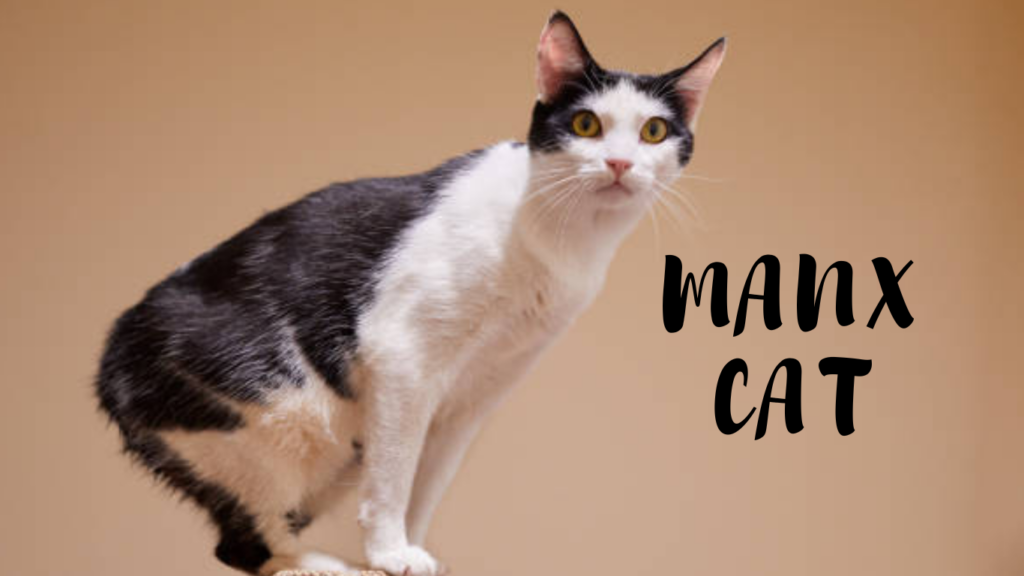The Manx cat is a remarkable breed with distinctive physical traits and charming personality characteristics. Known for their taillessness and playful nature, they are cherished by cat enthusiasts worldwide. Here is everything you need to know about this fascinating breed.
Physical Appearance
- Tailless Trait: The most famous characteristic of the Manx cat is its taillessness, caused by a genetic mutation. However, not all Manx cats are entirely tailless. They fall into four categories:
- Rumpies: Completely tailless.
- Rumpy-risers: A small rise of bone at the tail area.
- Stumpies: A short, stubby tail.
- Longies: Almost full-length tails, though often shorter than typical cat tails.
- Rounded Features: Manx cats have a rounded appearance, with a round head, broad chest, and a sturdy body.
- Coat Variations: They come in both short and long-haired versions, with various colors and patterns such as solid, tabby, and tortoiseshell.
Temperament and Personality
- Playful and Energetic: Manx cats are lively and love interactive play. They often show dog-like behaviors, like fetching objects.
- Affectionate and Loyal: They bond strongly with their human families, often following their owners around the house.
- Intelligent and Curious: Manx cats are quick learners and can be trained to perform tricks or respond to commands.
- Protective Instinct: Known for their protective streak, Manx cats make excellent companions in homes with children or other pets.
Health and Care
- Spinal Issues: The genetic mutation that leads to taillessness can sometimes cause spinal problems, collectively known as “Manx Syndrome.” Regular veterinary check-ups are crucial to monitor their health.
- Grooming Needs: Short-haired Manx cats require weekly brushing, while long-haired varieties benefit from more frequent grooming to prevent tangles and mats.
- Diet and Exercise: Provide a balanced diet and plenty of opportunities for physical activity to keep your Manx cat healthy and happy.
History and Origin
- Isle of Man Heritage: The Manx cat originates from the Isle of Man, a small island between England and Ireland. Their name is derived from their birthplace.
- Ancient Roots: Historical records and folklore suggest Manx cats have existed on the island for hundreds of years, possibly introduced by sailors.
- Symbol of Good Luck: On the Isle of Man, Manx cats are often seen as symbols of good luck.
Is a Manx Cat Right for You?
If you are looking for a playful, affectionate, and unique feline companion, the Manx cat might be the perfect addition to your family. Known for their distinctive tailless appearance and strong hind legs, Manx cats are agile, intelligent, and full of personality. They are often described as having a dog-like loyalty, following their owners from room to room and even playing fetch.
Manx cats are highly social and thrive in a loving environment where they receive plenty of attention and interaction. They form strong bonds with their families and can be great companions for children and other pets. However, due to their energetic and intelligent nature, they require mental and physical stimulation to stay happy and healthy.
Before bringing a Manx cat into your home, consider their grooming needs, dietary requirements, and potential health concerns associated with their breed. Ensuring you can provide them with proper care and affection will reward you with a devoted, affectionate, and playful furry friend for many years to come.
Manx cats are unique due to their tailless or short-tailed appearance and are known for their playful, intelligent personalities akin to dogs. They enjoy interactive play, learn tricks, and often follow their owners around, showcasing their affectionate nature. Manx cats thrive on companionship, frequently snuggling in their owners’ laps, and their gentle, loyal disposition makes them a warm and loving addition to any home. Adopting a Manx cat offers the opportunity to experience the delightful companionship of this remarkable breed.
Manx cats are not just physically unique with their tailless or short-tailed appearance, but they are also full of personality and charm. Known for their playful and intelligent nature, these cats are often compared to dogs because of their strong bond with their humans. They love interactive play, enjoy learning tricks, and may even follow their owners around the house. In addition to their entertaining antics, Manx cats are incredibly affectionate and thrive on companionship, often curling up in their owner’s lap for a cozy snuggle.
Their gentle and loyal disposition makes them a wonderful addition to any home, bringing warmth, joy, and endless love. If you’re looking for a devoted and delightful feline friend, consider adopting a Manx cat and experiencing the unique companionship this remarkable breed has to offer.
